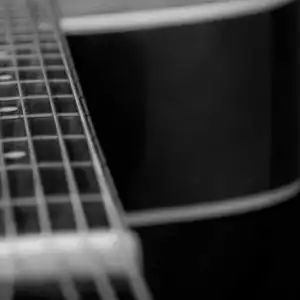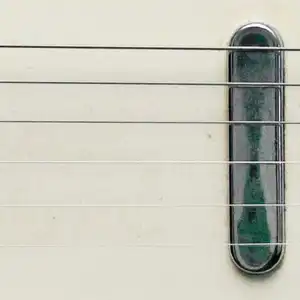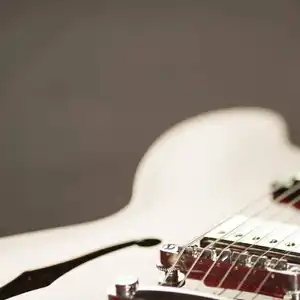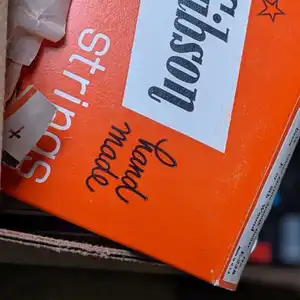Coated Guitar Strings: Are They Right For You?


If you’ve ever gone shopping for new strings (and I’m going to go ahead and assume you have), chances are you’ve seen some coated guitar strings on the shelf before. Whether you are a beginner to the world of guitar or a total expert, it's important to understand what guitar string coating is all about.
In theory, they seem like they’d be pretty awesome. When it comes to actually playing them, well, that ends up being a different story. Before we really dive too deep, it’s important to look at how the world of string coating came to be.
History of Coated Guitar Strings
Coated guitar strings came around the in the 1990s when guitarists were looking for a way to make their strings last longer, because let’s face it, changing your strings is a pain. And until someone comes up with an easier and faster way of doing it, it will always continue to be a pain.
Guitarists were frustrated with buying a new set of strings and having them go dead after a few gigs due to the wrap wires being very susceptible to corrosion from sweat and the oils in their skin (as well as natural oxidation).
 Cross section of a coated guitar string. Image from citymusic.com
Cross section of a coated guitar string. Image from citymusic.com
In order to combat all of this, some companies starting creating strings with a thin layer of polytetrafluoroethylene, more commonly referred to as Teflon®. This barrier helped to keep players’ fingers and their sweat and oils from coming in direct contact with the strings. It also stopped the oxygen in the air from coming in contact with the wrap wire to help minimize corrosion.
Pros and Cons of Coated Guitar Strings
As with everything in life, coated guitar strings have their benefits and their drawbacks. The main benefit of them is they last longer than their uncoated counterparts. This is because they are no longer able to build up the same amount of dirt and grime as quickly and they are resistant to corroding. Since they’re are no longer the little valleys created by the wrap wire, finger noise is reduced to a minimum. This is a big plus for acoustic players that are using very close miking techniques.
So while all this sounds great, the big drawback of coated guitar strings is in the tone department. Coated guitar strings have lower output and reduced sustain—and while this is a bit subjective, many players find their tone to have a plasticky character to it. See, while that tiny barrier of Teflon® on there is great for keeping those strings clean, it’s also limiting how much the string can vibrate, which is ultimately the string’s main job at the end of the day. They’re also going to have a totally different feel to them. Most players report they have a slippery feel which some players enjoy and others abhor, it all comes down to preference.
Where Do We Stand?
To us, the sound and feel of uncoated strings is just too good to pass up. That’s why all of our strings are uncoated, but many of our customers report Stringjoy strings last longer than any other uncoated strings they’ve played before.
There are, however, a few things you can do to keep your uncoated strings in tip-top shape and make sure they sound and play their best, so you can have excellent string-life, without having to sacrifice output or sustain:
- You can wash and dry your hands before playing your guitar. This way, any dirt or oils that may be on your hands will be washed away before they even get a chance to touch your strings.
- You can wipe down your strings with a soft cloth both before and after playing. Any sweat had accumulated while playing will be wiped away so it’s not eating away at your strings while its not being played.
- You can also keep your guitar in its case when not in use to help minimize the effects your environment might have.
- Lastly, and this is more for entertainment value, but you can always boil your current set of strings in hot water. Just make sure you take them off of your guitar before throwing them in pot!
Other Posts you may like

Guitar Strings Order: How the Guitar is Tuned and Why

Two Handed Tapping: Our Top 8 Tappers of All Time

Which Guitar Strings Wear Your Fret Wire Down More?

What is Nashville Tuning? Its History, Best Guitar Strings & Uses

Guitar Scale Length Explained: String Tension & Playability

What Guitar Strings I Used To Play...
0 Responses
Leave a Reply
Your email address will not be published. Required fields are marked *

